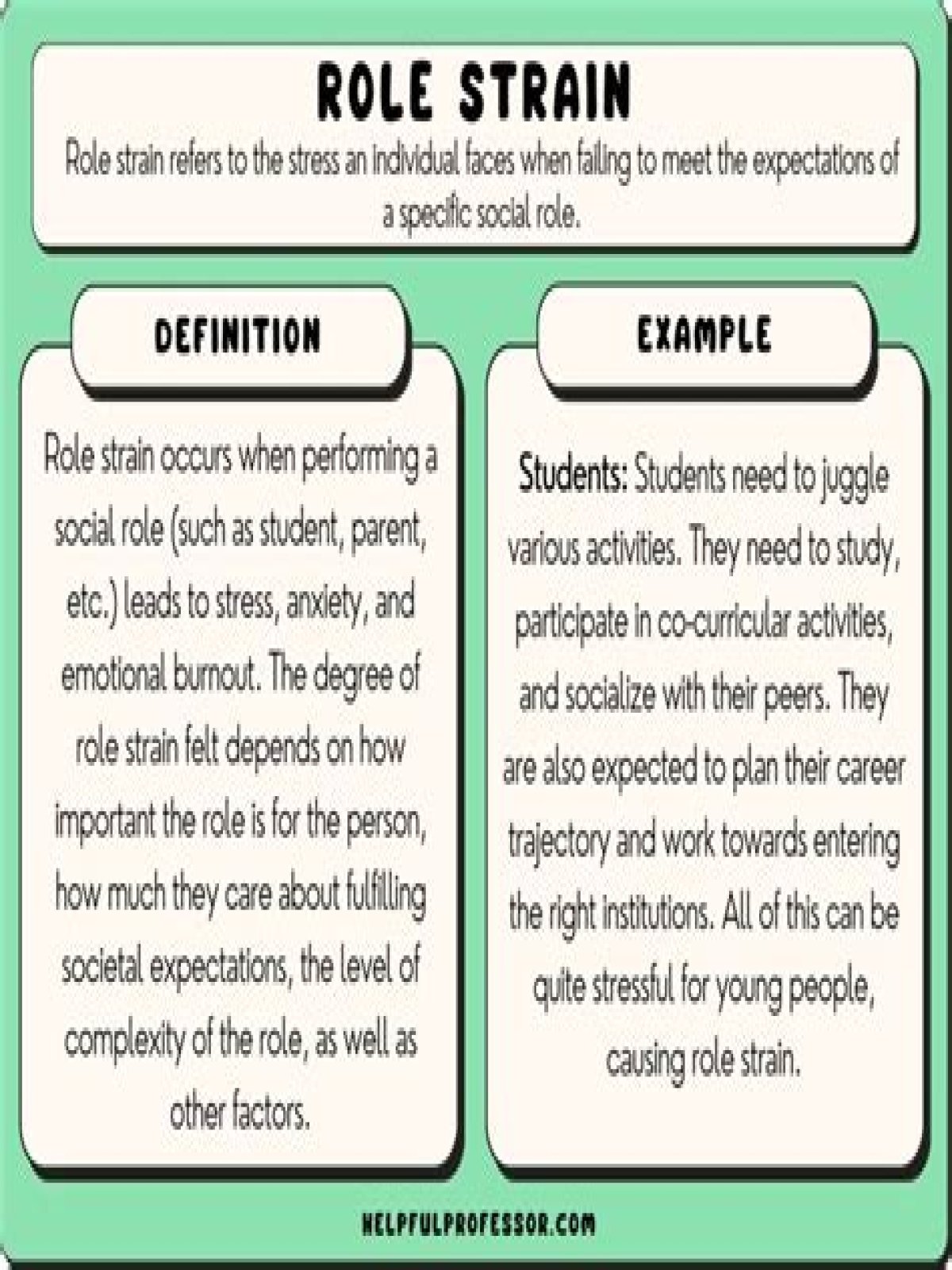Role strain occurs when obligations of fulfilling the duties of a role become challenging. For example, a teacher who struggles with the need to discipline students while also empathizing. This could be role strain because it puts so much pressure on this particular role in one’s life.
What is role strain in sociology Example?
For example, role strain might occur if a sleep-deprived new parent experiences stress while navigating the challenges of having a baby. Role conflict might occur if a working parent has to choose between attending a PTA meeting and an important work meeting because both events are scheduled at the same time.
What is role strain or role conflict?
Role strain and role conflict describe different phenomena. Strain is experienced within one particular role, such as being a student, while conflict occurs between two different roles, such as being a student and an employee.
What is nurse role strain?
Mosby’s online medical dictionary defines role strain as “the stress or strain experienced by an individual when incompatible behavior, expectations, or obligations are associated with a single social role” (“role strain”, n.d.).
What is Thomas theorem theory?
The Thomas theorem is a theory of sociology which was formulated in 1928 by W. I. Thomas and D. S. Thomas (1863–1947): “ If men define situations as real, they are real in their consequences. ” In other words, the interpretation of a situation causes the action.
What does strain mean in sociology?
Social strain theory was developed by famed American sociologist Robert K. Merton. “Strain” refers to the discrepancies between culturally defined goals and the institutionalized means available to achieve these goals.
What is an example of role conflict?
When the expectations of two or more roles are incompatible, role conflict exists. For example, a supervisor at a factory may feel strain due to his or her role as friend and mentor to the subordinate employees, while having to exhibit a stern and professional watchful eye over the employees.
Why do nurses get burnout?
Nurses may experience burnout due to a variety of causes. Some of the most common reasons for nurse burnout include long work hours, sleep deprivation, a high-stress work environment, lack of support, and emotional strain from patient care.
What can burnout cause?
It can lead to personal and professional dissatisfaction; social isolation; relationship problems; depression; substance abuse; and, in extreme cases, suicide. Therefore, it’s important to learn how to prevent burnout and to seek professional attention if it occurs.
Are nurses suffering from burnout?
Burnout affects approximately 38% of nurses per year.
It is defined as emotional, mental, and physical exhaustion caused by excessive and prolonged stress. It impacts nurses’ personal lives, the patients they take care of, and the organizations they work for.
